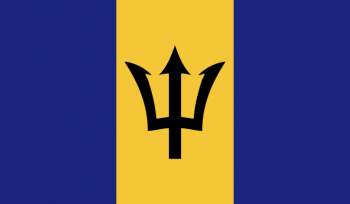
The Caribbean region has some of the world’s highest per-capita consumption of sugary drinks and rising obesity and non-communicable disease (NCD) prevalence. In Barbados, non-communicable diseases (NCDs) accounted for 83% of all deaths in 2016. Among children and adolescents, the country faces a double burden of malnutrition, with stunting and wasting occurring alongside rising rates of overweight and obesity. Recognizing the need to address these public health issues, the Barbados Ministry of Health and Wellness has prioritized NCD prevention and committed to policies aimed at improving dietary quality.
Barbados has led the region in this regard as the first Caribbean country to implement a sugary drink tax in 2015 — a 10% ad valorem excise tax that was increased to 20% in 2022. Also in 2022, Barbados passed the National School Nutrition Policy to improve the school food environment for children. The policy includes measures related to food service, marketing in the school environment, physical activity, school health and nutrition services, curriculum, and community health promotion. Implementation has begun and will continue in a phased approach in 2023.
Policy Research
Policies
National School Nutrition Policy | Implemented February 15, 2023
Barbados National School Nutrition Policy
The National School Nutrition Policy aims to create healthy school environments that enhance student learning and are conducive to the development of healthy lifelong eating and activity behaviors through a multisectoral and integrated approach. The policy applies to all public and private schools and educational institutions from preschool to tertiary level and covers six broad thematic areas:
- Food services environment, including:
- Nutrition standards for all foods and beverages available in schools
- Restrictions on marketing and advertisement in schools of foods and beverages which are not consistent with the nutrition standards and healthy dietary practices
- Improvements in eating environments in schools
- School curriculum: Mandatory, comprehensive nutrition and physical education as part of a national, sequential school curriculum from preschool to secondary level
- Physical activity environment: A holistic, comprehensive approach to creating a supportive and sustainable physical activity environment in schools which facilitates participation in PA throughout the school day
- School health and nutrition services: Integration of supportive health and nutrition services to help in the prevention, timely identification and treatment of overweight and obesity and other health and nutrition-related problems
- Annual health/nutrition assessments of all school children
- Strengthened partnerships between schools and health teams
- Health promotion for the school community: Educational and promotional activities to promote active participation of school personnel, parents, and community members and to ensure students receive consistent messages through multiple channels (e.g., home, school, community, and media) and from multiple sources (e.g., parents, peers, teachers, health workers)
- School recognition: Program to encourage schools to promote healthy eating and physical activity and recognizes school efforts at improvement of the school environment in compliance with the policy
The School Nutrition Policy officially was approved in May, 2022, launched February 15, 2023, and is being introduced to all schools in a phased approach during the 2022–2023 academic year.
Read the full policy.
Excise tax on salty snacks | Passed March 10, 2025
20% excise tax on salty snacks
In early March 2025, the Barbados Ministry of Finance, Economic Affairs and Investment announced several tax proposals in the 2025 budget, including a 20% excise tax on certain snacks with high salt content (e.g., chips/crisps, salted nuts, corn curls, hot dogs, popcorn, pretzels, and crackers). This tax will implement June 1, 2025.
Excise tax on sweetened beverages | Passed August 1, 2015 | Amended April 1, 2022
20% excise tax on sweetened beverages
From August 1, 2015 – April 1, 2022, sweetened beverages were subject to a 10% ad valorem excise tax.
Announced March 14, 2022 and effective April 1, 2022, the rate of excise tax on sweetened beverages increased from 10% to 20%. The tax rate increase advances the Government of Barbados’s mandate to reduce sugar consumption through effective fiscal policy on sweetened beverages and brings the tax rate in line with recommendations of the World Health Organization.
The tax is levied on locally produced and imported beverages including carbonated soft drinks, juice drinks, sports drinks, liquid concentrates, and more. Drinks exempt from the tax include 100% juices, coconut water, plain and evaporated milk, powdered concentrates, and drinks sweetened with non-caloric sweeteners.
Table of applicable tariffs from the Barbados Revenue Authority
In-Country Research Partner
In-Country Team Lead
- Natasha Sobers - Professor, George Alleyne Chronic Disease Research Centre, CaIHR, Barbados
GFRP Team Leads
Publications
-
Understanding the need for a whole-of-society approach in school nutrition policy implementation: A qualitative analysis
Authors: Natasha P. Sobers, Lisa Bishop, Shu Wen Ng, Suzanne Soares-Wynter, Natalie S. Greaves & Madhuvanti M. Murphy
Published in: Implementation Science Communications, July 17, 2021 view full text